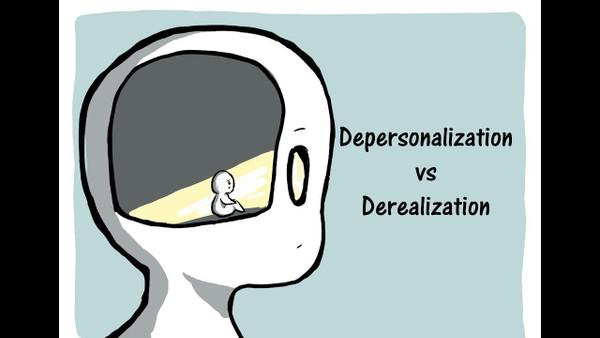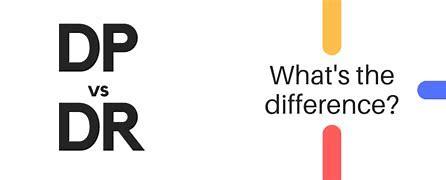Explore the World's Best Ideas
Join today and uncover 100+ curated journeys from 50+ topics. Unlock access to our mobile app with extensive features.
Depersonalization vs Derealization
have you ever felt detached from the world or felt like you don't belong in your own body when you look down at your hands?
Depersonalization and Derealization are psychological disorders in which this experience is intense and prolonged.
About 50% of the population have come across at least one of these experiences in their lifetime but only roughly two percent are actually diagnosed with the disorder. It occurs equally in both men and women and can start early in one's early or middle years.
But the two terms Depersonalization and Derealization are often mixed up and misunderstood.
11
219 reads
So what's the difference?
Depersonalization is when you feel cut off from yourself. When you feel like a robot or like you're not in control of your own movements, you're experiencing depersonalization. People with depersonalization disorder don't feel like themselves and struggle with feeling in tune with their emotions. These patients may feel like they're outside observers of their own lives. They feel disconnected from their memories and may not remember them clearly. Most of the time they have out-of-body experiences because they don't feel grounded in their own bodies.
13
141 reads
Symptoms of out-of-body experiences
The symptoms could be hearing undefined sounds such as a train going by or soft murmurs and feeling like you're synching into a bed while your body feels numb and out of control.
10
122 reads
Derealization
derealization is when you feel cut off from the world. Patients who experience the symptoms of derealization feel as if they're in a dream or as if there is a glass wall or veil that's separating them from their surroundings. The world feels funny and distorted objects around them can feel and appear smaller or larger than they actually are. Surroundings may also be blurry or unusually clear. Sounds can seem louder and more overwhelming and time can feel like it's slowing down or going too fast.
13
104 reads
Causes and Treatment
The causes and treatment methods for both depersonalization and derealization are similar. Anxiety and depression are common in patients with these two disorders. They're often developed in people who experience severe stress in their lifetime which includes but is not limited to being emotionally abused or neglected during childhood, physical abuse, witnessing domestic violence, having a severely impaired or mentally ill parent, and having a loved one die unexpectedly. symptoms of this disorder can also be triggered by severe stress from toxic relationships, financial concerns etcetera
10
112 reads
Diagnosis
To get diagnosed with this disorder, one may get a doctor's evaluation, take questionnaires or tests and undergo specifically structured interviews. Physical examination and urine tests are also done to make sure other mental health disorders such as seizure disorder and substance abuse are ruled out. This disorder is diagnosed when symptoms last for a long time or recur over time. It's important to know that getting brief and temporary episodes of these symptoms doesn't necessarily mean you have these disorders instead you may just be going through a highly stressful situation.
10
88 reads
Treatment
For treatment for depersonalization or derealization, many patients undergo psychotherapy treatment of this disorder must address all stresses associated with an individual's triggers as this may help the patient become self-aware and give them the ability to take careful measures to prevent the next stressful episode in their lives. Cognitive techniques can also be used to help lock obsessive thinking about the unreal state of being and grounding techniques can encourage the individual to use their five senses to feel more connected with themselves in the real world.
9
86 reads
IDEAS CURATED BY
Heylo! I'm Dimah. I'm just a teen who likes writing random ideas, blogs, articles, novels and sometimes even poetry. My major interests are psychology and neurology, I love digging in more in these two subjects and expand my knowledge.
Dimah Khan's ideas are part of this journey:
Learn more about psychology with this collection
How to overcome unwanted thoughts
How to manage intrusive thoughts
How to change your attitude towards intrusive thoughts
Related collections
Similar ideas
11 ideas
5 ideas
How to STUDY When You DON'T FEEL LIKE IT!
Med School Insiders
Read & Learn
20x Faster
without
deepstash
with
deepstash
with
deepstash
Personalized microlearning
—
100+ Learning Journeys
—
Access to 200,000+ ideas
—
Access to the mobile app
—
Unlimited idea saving
—
—
Unlimited history
—
—
Unlimited listening to ideas
—
—
Downloading & offline access
—
—
Supercharge your mind with one idea per day
Enter your email and spend 1 minute every day to learn something new.
I agree to receive email updates

